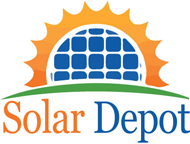Solar Panel Installation in Nigeria: The Complete Guide for Homes and Businesses
Solar Panel Installation in Nigeria
Nigeria faces a unique energy challenge: unreliable grid power, frequent blackouts, and rising fuel costs. As a result, more homes and businesses are turning to solar energy as a cleaner, more reliable, and cost-effective solution.
But one of the biggest questions Nigerians ask is, “How do I install solar panels, and what should I know before making the investment?”
In this comprehensive guide, we’ll walk you through everything you need to know about solar panel installation in Nigeria, from costs and system design to the benefits, challenges, and tips for choosing the right installer.
1. Why Solar Panel Installation in Nigeria is Growing Fast
Nigeria is blessed with abundant sunshine, receiving an average of 4–7 peak sun hours daily depending on the region. This makes it one of the most solar-friendly countries in Africa.
Other reasons why solar installation is booming include:
Unreliable Grid Supply – Constant power cuts force homes and businesses to seek alternatives.
Rising Generator Costs – Petrol and diesel prices are climbing, making generators expensive to run.
Eco-Friendly Energy – Solar offers a clean, noise-free, and pollution-free power option.
Government Incentives – In some areas, there are initiatives supporting renewable energy adoption.
2. The Benefits of Solar Panel Installation in Nigeria
Installing solar panels provides long-term benefits beyond immediate electricity savings:
24/7 Reliable Power – Say goodbye to blackouts and generator noise.
Lower Electricity Bills – Reduce or eliminate reliance on expensive grid power.
Environmentally Friendly – Reduce carbon emissions and help fight climate change.
Low Maintenance – Once installed, solar panels require minimal upkeep.
Long Lifespan – Panels typically last 20–25 years with proper care.
Increased Property Value – Homes and businesses with solar installations are more attractive to buyers.
3. Types of Solar Panels Available in Nigeria
Before installation, you must choose the right type of solar panel:
a) Monocrystalline Panels
Higher efficiency (15–22%).
Space-saving and long-lasting.
Slightly more expensive.
b) Polycrystalline Panels
Lower efficiency (13–17%).
Affordable and widely available.
Requires more space for the same output.
c) Thin-Film Panels
Flexible and lightweight.
Best for temporary setups.
Shorter lifespan than crystalline panels.
4. The Solar Panel Installation Process
Here’s what to expect when installing solar panels in Nigeria:
Step 1: Energy Audit
Calculate your daily electricity consumption to determine the system size.
Step 2: System Design
Choose the right combination of panels, inverter, and batteries based on your load.
Step 3: Site Assessment
Installers assess roof angle, shading, and structural integrity.
Step 4: Installation
Solar panels are mounted, wiring is connected, and inverters and batteries are set up.
Step 5: Testing and Commissioning
System is tested to ensure safe and efficient operation.
5. Cost of Solar Panel Installation in Nigeria
The cost of solar panel installation depends on system size, quality of components, and location.
Approximate Costs (as of 2025):
Note: Prices vary depending on panel brand, inverter type, and battery storage (lead-acid vs lithium).
6. Factors to Consider Before Installation
Before installing solar panels in Nigeria, consider these key points:
Your Energy Needs – How many appliances do you want to power?
Roof Orientation – South-facing roofs get the best sun exposure.
Battery Choice – Lithium batteries last longer and are more efficient than lead-acid.
Installer Expertise – Work with certified professionals to avoid poor installation.
Future Expansion – Design a system that allows upgrades.
7. Common Challenges of Solar Installation in Nigeria
While solar offers many benefits, there are challenges to be aware of:
High Initial Cost – Though prices are dropping, upfront costs can be high.
Poor Installations – Unqualified installers may cause inefficiencies or system failures.
Counterfeit Products – Fake panels and batteries flood the Nigerian market.
Weather Dependence – Reduced efficiency during prolonged cloudy days.
8. Maintenance Tips for Solar Panels in Nigeria
To maximize efficiency and lifespan:
Clean panels regularly – Dust reduces efficiency.
Check wiring connections – Prevent short circuits.
Avoid shading – Trim trees that block sunlight.
Monitor system performance – Use smart inverters to track output.
Schedule professional inspections annually.
9. Why Choose Solar Depot NG for Installation
At Solar Depot NG, we provide:
Premium brands like Dyness, Solis, Victron, and Itel Energy.
Professional installation with warranties.
<





